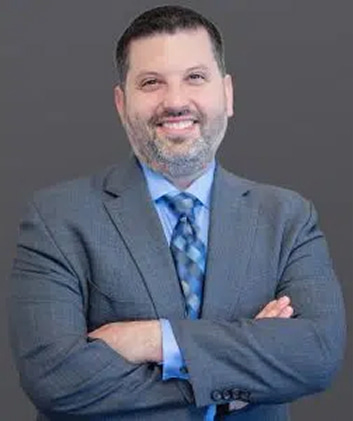Summary:
Yes, your lawyer can be appointed as the executor of your will, known as a “personal representative” in Florida. This is legal, provided the lawyer is a Florida resident or otherwise qualified under state law. Naming your attorney has advantages, such as legal knowledge and neutrality, but also warrants caution to avoid conflicts of interest. If you’re in Boca Raton, FL, it’s important to understand how state law and practical dynamics influence this decision before you finalize your estate plan.
Naming an executor, officially called a “personal representative” in Florida, is one of the most crucial parts of writing your will. This is the person who’ll handle everything after you’re gone: gathering your assets, paying off debts, filing final taxes, and distributing what’s left to your heirs. So, can your lawyer wear that hat?
In short: Yes, your attorney can serve as the executor of your will in Florida. But before you hand over the reins, let’s unpack the rules, benefits, and risks so you can make an informed decision.

Can My Lawyer Also Be The Executor Of My Will?
Florida law generally allows anyone over 18 to serve as an executor. They must be mentally competent and not a convicted felon. Additionally, they must either be a Florida resident or closely related to you by blood, marriage, or adoption.
That means your lawyer can absolutely serve, if they meet the residency requirement or the familial exception.
So why do some people choose their lawyer as executor?
For many, it’s about trust and capability. You may already have a working relationship with your estate-planning attorney. You’ve discussed personal finances, family dynamics, and your long-term intentions. Who better to carry out your plan?
Still, the overlap between legal advisor and executor raises ethical and practical considerations we’ll walk through next.
Pros Of Appointing Your Lawyer As Executor
If you’ve already developed a strong working relationship with your estate-planning attorney, it may feel natural to extend that trust by naming them as your executor. In some cases, it’s not just a matter of trust. It’s a strategic decision rooted in efficiency, legal knowledge, and the desire to avoid family friction.
Let’s take a closer look at why choosing your lawyer for this role can be a smart move.
Legal Know-How
Your lawyer already understands the probate process, filing requirements, and key deadlines. This experience can help avoid costly missteps, especially if your estate involves complicated assets or potential creditor claims.
Professional Neutrality
Attorneys are bound by fiduciary duties and ethical obligations, which can bring a welcome sense of impartiality. This is especially helpful in families where inheritance decisions might stir up tension or suspicion.
Continuity With Your Plan
No one knows your estate plan better than the person who helped draft it. Naming your lawyer as executor creates a seamless transition from planning to execution—your wishes are more likely to be carried out as intended.
Choosing your lawyer offers distinct benefits, but it’s not the right fit for everyone. Next, let’s examine the risks and limitations you should weigh before making your decision.
Risks & Considerations To Weigh Carefully
Even with the benefits, naming your lawyer as executor isn’t a one-size-fits-all decision. Consider these potential drawbacks.
Conflict Of Interest
Some legal professionals may draft a client’s will naming themselves as the executor. This is allowed but must be handled delicately, especially if the lawyer stands to receive compensation.
Florida law allows executors to be paid a statutory fee based on the size of the estate. If the executor is also the attorney handling the estate, they may receive two fees: one for legal work and one for administration.
Family Disapproval Or Suspicion
Even if your intentions are pure, heirs may view your lawyer’s dual role with skepticism. This can lead to mistrust, or worse, legal challenges to your will.
Fee Structure
Executors in Florida are entitled to “reasonable compensation.” This can range from 3% of the estate’s value downward or upward depending on complexity. If your lawyer charges both executor and attorney fees, costs can rise, something your heirs might resent.
Every estate and every family is different. While naming your lawyer can make sense in the right context, it’s not a one-size-fits-all solution. That’s why the next step is thinking carefully about who you trust to carry out your wishes when the time comes.
Who Should You Choose As Executor?
Naming the right executor is about choosing someone who can handle legal, financial, and emotional responsibilities during a sensitive time. Whether it’s your attorney, a relative, or a professional fiduciary, your choice should reflect both capability and compatibility with your estate’s complexity.
Trustworthy & Organized
Your executor will manage everything from locating financial documents to communicating with heirs and filing court papers. This requires integrity, attention to detail, and follow-through over months or even years.
Financially Literate
Executors must understand how to handle debts, taxes, investments, and asset distributions responsibly. A basic comfort with financial matters can reduce errors and delays.
Able To Navigate Complex Family Relationships
The best executors stay calm and fair even when emotions run high. If your family dynamic includes past tension or unequal distributions, this quality is especially important.
Willing & Able To Serve
Not everyone has the time, health, or willingness to take on this role, so always have an honest conversation first. And make sure your choice understands the scope of what’s involved.
If you’re still unsure, working with our estate planning attorney can make all the difference. Let’s look at how a legal team can help you make a confident, informed decision.
Boca Raton Probate Attorneys Helps You Name Your Executor
At Boca Raton Probate Attorneys, we often help clients avoid common mistakes that can derail even the most well-intentioned estate plans. Naming an executor is a decision with legal, emotional, and financial consequences. Here’s how we help you get it right from the start.
We Make Sure No One’s Caught Off Guard
One of the most frequent issues we see is naming someone without their knowledge or consent. We guide you through conversations with potential executors to confirm willingness and capacity before you put anything in writing.
We Focus On Capability, Not Guilt Or Obligation
It’s tempting to name the oldest child or a family member out of fairness. We help you step back and assess who’s actually best equipped to manage your affairs smoothly and responsibly.
We Always Recommend Naming A Backup
Life happens. We make sure your estate plan includes a qualified successor who can step in if your first choice is unwilling or unable to serve.
We Keep Florida Law Front & Center
 Florida’s rules—like the in-state residency requirement for non-relatives—can invalidate your choice if not followed. We ensure every appointment complies fully with the law, preventing delays or court challenges later on.
Florida’s rules—like the in-state residency requirement for non-relatives—can invalidate your choice if not followed. We ensure every appointment complies fully with the law, preventing delays or court challenges later on.
By working with our firm, you’re building a plan with confidence, clarity, and peace of mind. And if the right choice isn’t obvious? We’ll walk you through your options step by step.
Book Your First Appointment
If you’re considering naming your attorney as executor—or you’re unsure who should carry out your will—we’re here to help. At Boca Raton Probate Attorneys, we guide families like yours through every step of the estate-planning process with compassion and clarity. Let’s build a plan that protects your legacy with confidence.




